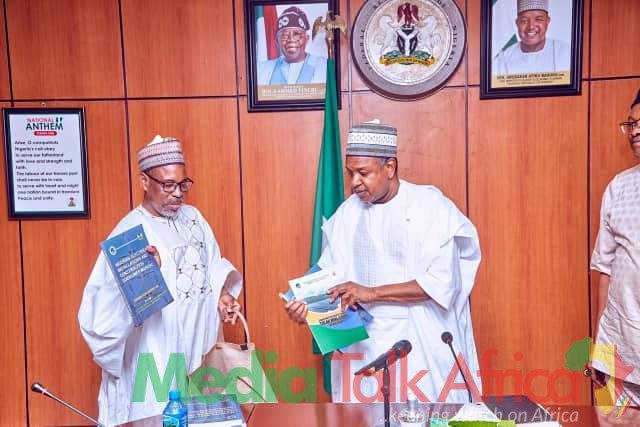The Federal Government of Nigeria, led by Minister of Budget and Economic Planning Sen. Abubakar Atiku Bagudu, has made a firm commitment to achieve a target of 350GW electricity generating capacity by the year 2043. During a recent briefing in Abuja, the Minister emphasized the need for collective efforts to meet this ambitious goal.
The current administration, under President Bola Ahmed Tinubu, has deemed the Power Sector as the highest priority among all assets classes in the National Integrated Infrastructure Master Plan (NIIMP).
Over the years, the Nigerian government has implemented various reforms to revamp the power sector, with the latest being the new electricity bill. This legislation repeals the Electricity and Power Sector Reform Act of 2005 and consolidates the law relating to the Nigerian Electricity Supply Industry (NESI).
The Nigeria Electricity Act 2023, a key component of the new electricity law, prioritizes the implementation of tariffs that accurately reflect the cost and service provided. It also aims to promote competition in the electricity sector through the use of contracts and rules.
One of the crucial players in the Nigerian Electricity Supply Industry (NESI) is the Nigerian Electricity Management Service Agency (NEMSA). The agency is responsible for enforcing technical standards and regulations, conducting inspections, testing, and certification of all electrical installations in the country to ensure the stability, safety, and reliability of electricity networks.
The objectives of NEMSA include eliminating electrical accidents, ensuring energy accountability, and eradicating substandard electrical equipment and unqualified electrical installation personnel contractors.
According to Bagudu, NEMSA has undertaken a range of activities to fulfill its mandate. This includes inspecting over 15,931 electricity projects nationwide, certifying 10,692 installations fit for use, and monitoring 12,114 existing networks and power systems across the country. NEMSA has also conducted inspections of 3,255 electrical installations at factories.
The Managing Director/Chief Electrical Inspector of the Federation, Engr. Aliyu Tukur Tahir, highlighted that their primary focus is to establish a steady, safe, and reliable electricity network. He emphasized the importance of adhering to technical standards and regulations to mitigate the hazards associated with electricity usage.
With its sights set on achieving 350GW electricity generating capacity by 2043, Nigeria remains committed to advancing its power sector and ensuring a stable and efficient supply of electricity across the nation.
